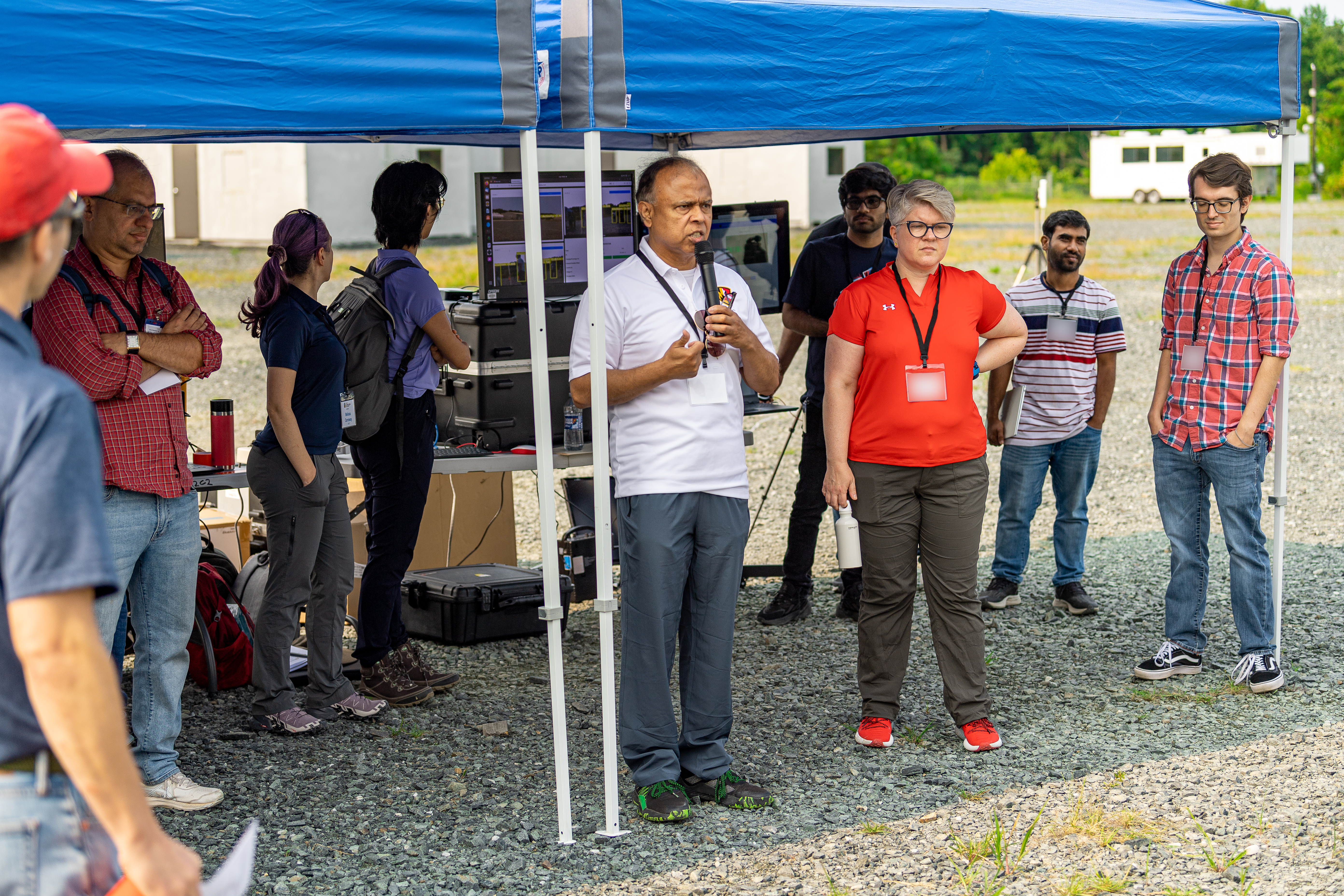ARLIS researchers participated for the second time in the Artificial Intelligence and Autonomy for Multi-Agent Systems (ArtIAMAS) Field Experiment, held Aug. 2 at the Army Research Laboratory Robotics Research Collaboration Campus at Grace’s Quarters in Middle River, Md.
Researchers Jacob Bunker and Steven Howell demonstrated migrating existing robotic simulation capabilities from desktop computers to the cloud. Though in the early stages, once the capabilities are operational, they will enhance testing and evaluation, speed up research, and provide engineers with better performance expectations before live field tests. Bunker and Howell were supported by an undergraduate University of Maryland student, Candace Sun, and two Research for Intelligence and Security Challenges interns, Scottie Tran and Tomer Atzili.

The second team included Susan Campbell, Victoria Chang, and Melissa Carraway. They provided a situational awareness display in support of the University of Maryland Baltimore College’s (UMBC) work on automated screening, in which Boston Dynamics Spot robots provided information to a command post about potential concealed threats. Part of that work involved a sub-team from UMBC conducting research and development on guiding robots using voice and gestures. The ARLIS team is in the process of developing models, tools, and experiments for human-machine teaming, especially focused on instantiating goals and determining when and how autonomous systems should interrupt humans who are engaged in team goals. Carraway was the lead author of recent conference paper, Navigating Team Cognition: Goal Terrain as Living Map to Situation Awareness (researchgate.net), which has additional detail.
ArtIAMAS is a cooperative agreement between the Army Research Laboratory and UMD. UMBC is a major participant, along with other universities including Morgan State University, Howard University, and George Mason University. The UMD activities are led by Derek Paley of the Maryland Robotics Center and involve faculty from ARLIS along with other units across campus including Computer Science and Engineering.
Held for the first time in 2022, the field experiment provides visitors from the military, government, and academia an opportunity to engage with researchers conducting experiments that are organized around an ArtIAMAS operational vignette, which simulates the state and actions of a robotic scouting platoon in 2040. Last year, Howell, Campbell and Craig Lawrence, now ARLIS interim executive director, adapted state-of-the-art simulation capabilities for testing of autonomous road vehicles to the ArtIAMAS off-road domain.
